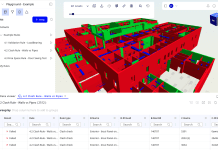Innovative solutions are helping to solve the often thorny issue of construction payments
Payments and the construction industry have a somewhat chequered past. Frequently cited as one of the most common causes of disputes and delays, late or missed payments can cause projects to grind to a painful halt.
But, as we enter 2022, it no longer has to be a cause for concern, as innovative construction payment solutions are starting to prove.
By its very nature, the construction industry has been slow to get to grips with newer, innovative ways of working. Instead, any change has come gradually and often with some resistance.
The challenges with payments
It would be fair to say that the construction industry has never been known for prompt payments. The complexities associated with large projects, including the number of parties involved, can mean invoices, bills and applications for payment are hard to track and, as such, can be late or missed entirely.
When outdated and inefficient processes get added into the mix, you can be looking at the perfect storm for disaster – or at least many disgruntled subcontractors and unhappy clients.
Historically, larger organisations have been particularly guilty of being slow to pay their contractors. The knock-on effect has meant that SMEs at the bottom of the supply chain are typically the worst affected.
What steps have already been taken?
The 2018 collapse of Carillion thrust the impact of poor construction payment practices into the limelight. It was clear that a solution was needed to combat the problem, leading to the toughening up of the government’s Prompt Payment Code.
The voluntary initiative, intended to champion good practices within the industry, received support from many big players but it quickly emerged that they weren’t necessarily adhering to the principles.
The government declared that this would no longer be acceptable and that they would start naming and shaming companies who didn’t pay at least 95% of their invoices within 60 days – and would publicly suspend them from the code.
The fact that a number of the UK’s largest contractors have at one time or another been suspended from the code over the last couple of years for failing to meet this requirement is indicative of how ingrained the practice of late construction payment has become.
Shoots of change emerging?
It isn’t all doom and gloom for the sector, though. Green shoots may be appearing and changing attitudes are now firmly on the horizon. Technology is improving multiple areas of the construction industry, improving outcomes for contractors and clients alike. Payment is just the next step in the industry’s digital transformation.
Generally, companies rely on laborious paper-based systems and emails to manage applications for payment, which can create a whole range of issues that take time and money to resolve.
What’s more, if you, your suppliers and your subcontractors are all working on entirely different systems and inconsistently across multiple projects, the whole process can quickly break down. The result is late or inaccurate payments which can cause disputes and project delays.
Some may view delays as inevitable, putting them down to part and parcel of the construction industry. But does this have to be the case?
Alternative options and specialist software solutions are now available, all of which can help you keep on top of payment applications and approvals. By embracing the digital age, the construction industry is starting to turn to cloud-based payment application solutions, which provide efficient and workable solutions to payment problems.
The future of construction payments
Announced in late 2020, the Construction Playbook sets out key policies and guidance for how public works projects and programmes are assessed, procured and delivered.
With innovation and reform a contemporary topic in the Playbook, the way the sector deals with payments is already changing. Adopting alternative software solutions can lead to a much more efficient and collaborative industry that not only pays promptly but also has a lower risk and reduced likelihood of project delays.
As a single source of truth for information on a project, Payapps has proven to streamline workflows throughout the entire process of submitting and certifying payment applications, while timely reminders ensure deadlines aren’t missed. Not only can this significantly improve the speed and accuracy in terms of how applications for payment are processed but also it can help with one contentious point – compliance.
By turning to payment software, a business can reduce its blind spots across all departments while reassuring management, clients and the supply chain that they are operating in accordance with the Construction Act. This reduces the risk of adjudication and helping businesses stay on top of critical compliance items like insurance documents and CIS tax rates.
Adapting to change
A recent survey by Construction News found that nearly half of their respondents felt they did not know enough about the options available to digitise their payment process.
As such, it’s clear that improvements can be made to modernise the industry’s payment process, and that there is still a lot of work to be done.
For some, sifting through emails, documents and spreadsheets to find the information needed, having to remember when deadlines are due, or panicking when a key person is on holiday or off sick, continue to take up a considerable amount of time. But it should soon be a thing of the past.
With a solution like Payapps, designed to streamline the certification of applications for payment, timely reminders will ensure deadlines aren’t missed whilst keeping your projects on track.
Forward-thinking businesses are already switching to payment management solutions to keep closer tabs on construction payments and payment statuses across all projects.
To avoid the threat of delays and keep your business moving in the right direction, isn’t it time your business did the same?
Neal Hooks
Head of Payapps, UK&I
+44(0)785 002 0597
Please note: This is a commercial profile




![[Video] Fireco: 80 new fire doors required for residential flats in London](https://www.pbctoday.co.uk/news/wp-content/uploads/2025/04/2024-06-01-Lords-view-one_1200x750_004-218x150.webp)








